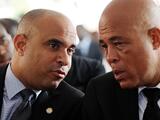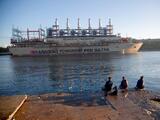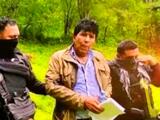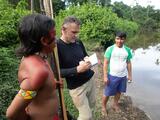And there there were none: Ortega eliminates his last main rival in Nicaragua's presidential election
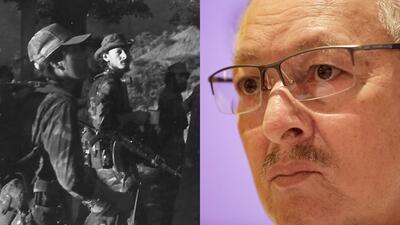
First there were eight, then there was one, and then there were none.
That’s how Nicaragua’s Nov 7 election is shaping up after the government of Daniel Ortega arrested and disqualified every major opposition candidate running against him, including his last remaining rival on Friday.
The country's Supreme Electoral Council (CSE) stripped the legal status of the Citizens for Liberty (CxL) party, effectively ruling out the last opponent, Oscar Sobalvarro, a 61-year-old rancher and former anti-communist guerrilla commander turned lumber exporter.
The presidential candidate for the CxL alliance had already been deprived on Wednesday of his vice presidential candidate, 27-year-old former beauty queen Berenice Quezada, amid the wave of arrests of Ortega opponents.
Many in the opposition questioned why Sobalvarro hadn't also fallen foul of Ortega, raising suspicions of some kind of back door deal, or blackmail.
Making it stranger still, Sobalvarro, is an ex-commander of the anti-Sandinista guerrilla army, the so-called 'Contras', who fought against Ortega in the 1980s following the left-wing 1979 revolution.
"We faced each other at that time and today we will face each other again, logically, in other circumstances now, within the civic struggle or the electoral struggle," he told Univision Noticias in an interview via Zoom earlier this week before his disqualification. "I have accumulated a lot of experience and I have also learned to live in this country with all the difficulties that have been presented to us or the challenges that have arisen in my life," he added.
Comandante Ruben
Sobalvarro joined the fight against Ortega as a teenager and rose in the ranks of the U.S.-backed counter-insurgency. Known as Comandante Rubén, he gave interviews to foreign journalists in the mountains of Nicaragua vowing to defeat Ortega and restore democracy with the support of the local peasantry. Two of his brothers died fighting the Sandinistas and Sobalvarro lost part of his foot stepping on a mine.
After the war ended and Ortega was defeated in election in 1990, Sobalvarro entered the government of Violeta Chamorro as part of a program to reintegrate former Contra fighters.
He says he only became an accidental candidate after all the others had been pushed aside and an August 2 deadline for candidates to register was looming.
"This opportunity arrived, which I did not expect because there were others who were aspiring to be candidates for the presidency ... they were arrested and are currently in jail ... and well, here I am now standing up for Nicaragua, doing what I have always done, which is to try to serve the country by fighting for democracy," he added.
Rather than playing Ortega's game, he said he hoped the opposition would unite around his candidacy as a legitimate alternative. "It will be up to me to find a way to unite the Nicaraguan family, with the objective of reaching November 7 and that we can demonstrate massively and that we can make that change," he said.
"I believe that this is a chapter that we have to find a way to close, right. We have to fight and continue to fight for our political prisoners to be released and that Nicaraguans who are in exile can also return to Nicaragua to be part of this family that we need to unite," he added.
However, his candidacy has been widely rejected by other opposition parties who accuse Sobalvarro of playing into Ortega's hands.
Deeply unpopular as Ortega is, few believe he can win a legitimate election, but running against a former Contra might have helped motivate the nationalist base of his party. But Ortega is taking no chances it appears.
CxL was one of three strong political alliances accredited by the electoral council for the elections, along with five small political parties.. The others are the ruling Unida, Nicaragua Triunfa - headed by Ortega's Sandinista National Liberation Front (FSLN), in power since 2007 - and the Constitutional Liberal Party (PLC), the second strongest bloc in parliament, and a government ally.
"Frightened"
On Friday, the PLC candidate, Milton Arcia, also resigned saying he was "frightened" after discovering that members of his party had requested the elimination of the CxL.
The CSE made its decision based on a complaint that CxL president Kitty Monterrey has dual nationality, accusing the party of fraud.
Sobalvarro was considered to have had much of a chance against Ortega. He had lost the support of some of his former Contra comrades who say he abandoned them in 1990 when the war ended. "He was distancing himself from the Contras. They gave him some properties. They kept the best for him and his allies," said Luis Adan Fley, a former Contra, known as Comandante Jhonson.
Mahogany logger
Sobalvarro has also been accused of enriching himself via illegal logging in Nicaragua which has stripped its forests of mahogany, earning him the title of "forest predator."
A detailed report in 2006, ' Emergency in the Forest,' cited alleged irregularities in the operations of a sawmill owned by Sobalvarro responsible for tons of exported wood.
Sobalvarro denied any wrongdoing, saying he operated legally with permits obtained under the international CITES regulating sustainable trade in species. He added that he abandoned the logging business 15 years ago in favor of cattle ranching.
"Collaborationist"
"[Sobalvarro] became a collaborationist. He has absolutely no chance of beating Ortega. As we say in Nicaragua, Ortega controls from head to tail all the country's institutions, including the electoral apparatus," said Fley, who is president of the Nicaraguan Democratic Force (FDN), a group of former Contras who no longer believe in armed struggle and who have joined the civilian opposition to Ortega.
Fley, now aged 70, went into exile in 1985 to join the Contras, was forced into exile for a second time last month after he was placed under house arrest in Managua. He slipped out of his house on July 11 and left the country. He spoke to Univison from Mexico, where he hoped to cross the border to seek political asylum in the United States next week.
He fled Nicaragua with two other miembros of the FDN, including Roxana Zamora, secretary general of the party who also escaped house arrest last month.
Fley says Sobalvarro and the CxL should have put principle above party. “You can't cohabit with this system. Ortega just wants to give it a veneer of legitimacy. It's a farce, a circus."
Treason law
Other opposition leaders, defended Sobalvarro’s right to run, while questioning if it’s the right decision in the current conditions Ortega has created. Under a controversial new censorship law - #1055 - anyone who criticizes Ortega or the government can be classified as traitor and prohibited from running for public office.
"We see a dictatorial regime that has destroyed the rule of law," said Luciano Garcia, president of Hagamos Democracia, a non-partisan political association that promotes citizen participation and political empowerment.
"The political parties are basically kidnapped by the regime because they don't have much choice to be able to act, they have them blackmailed under the law," added Garcia 54, was also forced into exile in Costa Rica in 2018. "There is not going to be an electoral campaign. Obviously, it is an illegitimate process," he said.
Sobalvarro acknowledged the limits on his campaign when Univision asked him about sanctions imposed against the Ortega regime by the United States and the European Union.
"The governing party has issued repressive laws against people who have an opinion on these issues and I wouldn't want to delve into that," he said, tip-toeing carefully around the issue.
"But I do want to say that I understand the concern that the international community has about what is happening in Nicaragua in terms of democracy and in terms of human rights violations. I am encouraged by that concern ... because it shows that something is not right here," he added.
Sanctions
On Friday, prior to the elimination of Sobalvarro’s candidacy, the Biden administration imposed visa restrictions on 50 immediate family members of Nicaraguan National Assembly representatives and Nicaraguan prosecutors and judges “responsible for or benefiting from the … regime’s attacks on democratic institutions.” That was on top of visa restrictions against 100 Nicaraguan legislators, judges, prosecutors, and family members, issued July 12.
It added that by arresting CxL’s Quezada earlier in the week, Ortega and his wife, Vice President, Rosario Murillo, “once again demonstrated that they are afraid of running against anyone who they feel might win the support of the Nicaraguan people.”
Feinberg says in the end Sobalvarro’s participation was unlikely to make a difference. “I think we are way past that. Ortega made a decision,” he said. “He’s just shutting down democracy and establishing an up-front, no disguise, autocracy. Elections don’t matter. Why even both to hold them at this stage?” he added.

